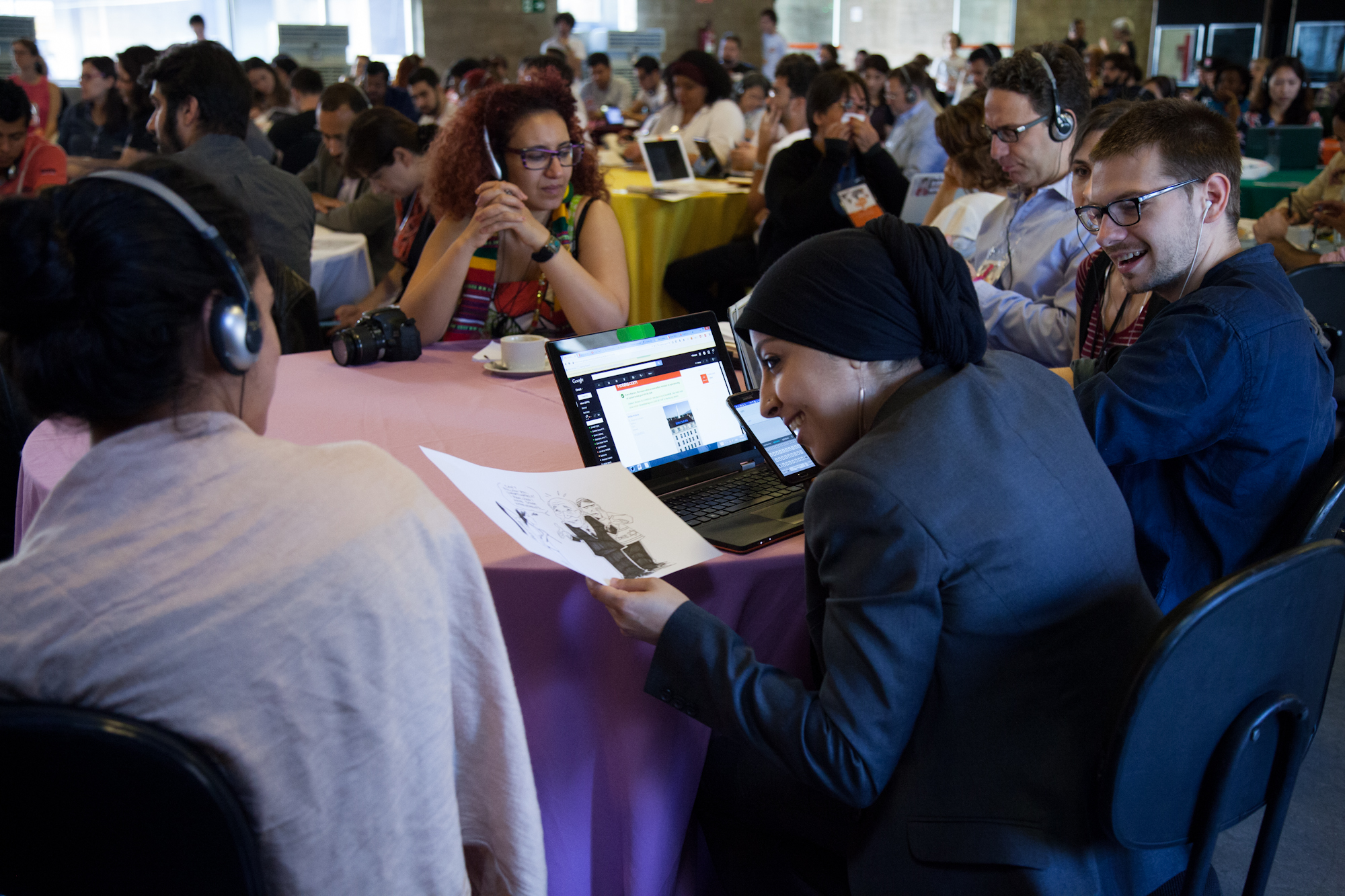
Location: São Paulo, Brazil
Grant Work: Global
Channel Focus Area: Women’s Leadership and Human Rights Institutes
Website: www.conectas.org
Watch: Conectas YouTube
Mission:
Conectas Human Rights is an international non-governmental, not-for-profit organization, founded in São Paulo, Brazil in October 2001, with the following mission: to promote the realization of human rights and consolidation of the Rule of Law, especially in Latin America, Asia, and Africa. Accordingly, Conectas develops programs that aim at strengthening activists and academics in the southern hemisphere and increasing their interaction with the United Nations and among them.
CONECTAS NEWS:
Channel Grants:
2010–2019: Channel made several grants over this time period to support the participation of women’s rights activists from the Global South and the inclusion of a gender specific perspective for the International Human Rights Colloquium organized by Conectas Human Rights in São Paulo, Brazil.
The International Human Rights Colloquium is a capacity-building and peer-learning conference convened for a week each year. A wide range of Global South activists, scholars, lawyers, and other interested parties gather to hear about the latest developments in the field, make connections with colleagues from around the world, and take away vital lessons from each other’s experience.
The history of the Colloquium coincides with the foundation of Conectas. Held every year since 2001, the main objective of the event is to bring together human rights activists and organizations from the Global South to share experiences and knowledge. Over the years, the Colloquium has been attended by more than 1,600 participants from 85 countries and has become one of the world’s largest and most traditional human rights conferences. With a motto of diversity, the event is a symbol of the strengthening of the struggle for human rights around the world, in pursuit of a more dignified, just and equal society.
2014: Channel made a grant to support the inclusion of women activists and a gender specific perspective in two of four regional meetings to be held in Africa and Latin America. The purpose of these meetings was to bring together a small group of diverse human rights defenders to discuss practical challenges and issues faced by the organizations in order to design a common agenda of action, first regionally, and then globally, in order to “Bring Human Rights Back to the Center.”
International Human Rights Colloquium Themes:
2019: The 16th Colloquium included activities in São Paulo, Rio de Janeiro, Pernambuco and Brasília, and the participants – divided into four groups – could see the fieldwork conducted by Conectas and its partner organizations in recent years. It was attended by nearly 50 human rights defenders from Brazil and other countries such as Hungary, the Philippines and Palestine.
2017: The 15th Colloquium focused on “Human rights today: crisis or transition?” (Oct. 2017). To hear from Colloquium participants about impact on their work, view Conectas’ summary video.
2015: The 14th Colloquium focused on “Human Rights and the Streets” (May 2015).
2013: The 13th Colloquium focused on “A New Global Human Rights Order? Actors, Challenges, and Opportunities” (Oct. 2013).
2012: The 12th Colloquium looked at “Human Rights Innovation: New Agenda, Strategies and Organizations?” (Oct. 2012)
2011: The 11th Colloquium focused on “Implementation at the National Level of the Decisions of the Regional and International Human Rights Systems” (Nov. 2011).
2010: The Colloquium focused on “Regional and International Human Rights Systems: Challenges for Civil Society Participation.” The annual event (Oct. 2010) celebrated its 10th Anniversary and gathered 42 human rights activists from 28 countries in the Global South, besides 29 speakers and observers.




